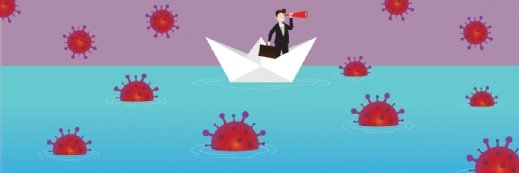
nuttapong punna/istock via Getty
How Precision Medicine Approaches Could Impact Mental Healthcare
Researchers are progressively applying precision medicine strategies to different aspects of mental healthcare for improved diagnoses and treatments.
While the healthcare industry has leveraged precision medicine approaches in areas ranging from cancer to Alzheimer’s disease, recently researchers have focused on the potential for targeted treatments in another sector: mental healthcare.
In the US, mental illness is common – nearly one in five adults live with a mental disorder, according to the National Institute of Mental Health (NIMH).
Accessing quality mental health services can be enough of a challenge on its own, but even after getting treatment, patients may have to undergo a trial-and-error period as providers try to figure out the right medications for them.
Understanding how to best treat mental illnesses, as well as being able to predict a patient’s risk of developing these conditions, would improve outcomes for the millions of people living with a mental disorder.
At the Atlanta VA Medical Center and Emory University, researchers are aiming to realize the potential of precision medicine for depression treatment.
Using a proteome-wide association study (PWAS) that integrated genome-wide association study (GWAS) data with human brain proteomic and genetic data, the team identified 19 genes that may lead to depression by altering brain protein levels.
Researchers also pinpointed 25 such proteins that offer promise as potential targets for new depression treatments.
The group determined that the 19 genes contribute to depression development by regulating their brain protein abundance. The brain protein fluctuations detected by combining GWAS and human brain proteomic data are likely among the earlier biological changes in depression, and may predispose someone to the condition. The findings could lead to new therapies, the team noted.
The group will need to conduct subsequent research to further examine the identified genes’ possible roles in depression, as well as to look for additional implicated genes and proteins.
“We are very excited to continue to work on these promising targets in our lab but caution that the road leading to new drugs is long and difficult,” said Thomas Wingo, first author of the study.
“We take heart that these findings could also prove useful as biomarkers for depressive symptoms. An effective biomarker—like hemoglobin A1C for diabetes—could help with diagnosis and management of depression.”
The VA and Emory study is similar to research that recently came out of Indiana University (IU) School of Medicine. Using a comprehensive four-step approach over four years, the IU team studied the effects of a blood test composed of RNA biomarkers in more than 300 participants.
With this approach, the group was able to show how to match patients suffering from mood disorders with medications, and even discovered a potential medication to treat depression. The test can distinguish how severe a person’s depression is, their risk of severe depression in the future, and their risk of future manic-depressive illness.
“Through this work, we wanted to develop blood tests for depression and for bipolar disorder, to distinguish between the two and to match people to the right treatments,” said Alexander B. Niculescu, professor of psychiatry at IU School of Medicine and lead author of the study.
“Blood biomarkers are emerging as important tools in disorders where subjective self-report by an individual, or a clinical impression of a health care professional, are not always reliable. These blood tests can open the door to precise, personalized matching with medications, and objective monitoring of response to treatment.”
The team expects that the findings of this study can be translated into clinical practice, potentially playing a critical role in improving quality of life for the millions of patients suffering from depression.
“Blood biomarkers offer real-world clinical practice advantages. The brain cannot be easily biopsied in live individuals, so we've worked hard over the years to identify blood biomarkers for neuropsychiatric disorders,” Niculescu said.
“Given the fact that one in four people will have a clinical mood disorder episode in their lifetime, the need for and importance of efforts such as ours cannot be overstated.”
In addition to helping researchers identify potential and existing treatments for mental conditions, precision medicine strategies can help with disease risk prediction.
Researchers from the University of California, Irvine (UCI), Children’s Hospital Orange County, and Chapman University were recently awarded a three-year grant totaling $2.3 million to address the health impacts of adverse childhood experiences (ACEs) using precision medicine.
The team will aim to identify the degree to which unpredictability of early life experiences interacts with established ACEs to influence children’s neurodevelopment. Additionally, the study will focus on employing an innovative epigenetic approach to discover a marker for each child that can predict their level of resilience. This will help providers deliver targeted treatments to those who need them most.
“The burden of ACEs is not equally distributed. There exists a greater risk of exposure among low socioeconomic and racial/ethnic minority communities,” said Tallie Z. Baram, MD, PHD, Bren Distinguished Professor and director of the Conte Center at UCI.
“Through this project we seek to determine how both established ACEs and a new, preventable ACE influence children’s emotional and cognitive behaviors, and identify a way to predict early-on if a child is impacted by ACEs or is resilient. Our goal is to enable caregivers to provide special attention and intervention to those most at need, ameliorating health disparities.”






